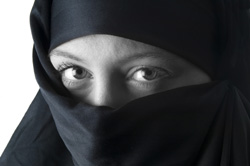
Shirin R. Tahir-Kheli, a native of India, was appointed by Rice to chair the WLWG and serve as her senior advisor for women’s empowerment. As such, she is responsible for global outreach, coordinating and meeting with various audiences to discuss U.S. efforts to empower women on a global level.
The WLWG is comprised of eight other women from Afghanistan, Burundi, Ecuador, Georgia, Greece, Liberia, Oman and Pakistan. They meet as often as is practical, usually during meetings of the United Nations General Assembly. At its last meeting in September, the WLWG discussed strategies for women’s empowerment worldwide, including providing greater economic opportunities, improving political participation and increasing access to education and the justice system.
We spoke with Ambassador Tahir-Kheli just before the September meeting and learned that the year-old WLWG has already made great strides. The fact that they have created a powerful, worldwide network of women is an achievement in and of itself. They are also changing the way in which women are represented at the U.N., steps toward which Tahir-Kheli has been seeing for the past 17 years. She said if they are able to make a breakthrough in this respect, “it will change the mindset of many people, which is not an easy thing to do.” The WLWG is looking for ways to establish cooperation among countries so they will work together on education and economic models of women’s empowerment. The ambassador noted that they “are focusing on the practical and the possible”—the opposite of many big-talk politicians today.
In the past several years, Tahir-Kheli has seen progress, both in terms of the desire to find common ground and to do so in a way which makes a lasting contribution and not merely immediate improvements. “Women make up more than 50 percent of the population and are often the more productive ones,” Tahir-Kheli noted, adding that it’s about time women are included in implementing major changes in the world.
According to the ambassador, education has become more readily available for girls throughout the world within the last decade, and has accelerated in the last five years. “We have seen that girls do very well when they get the chance, and tend to excel in sciences and become bankers and entrepreneurs.”
One of the ambassador’s main roles is to focus on outreach to the women of the Muslim world. She offered Morocco and Pakistan as the two Muslim countries most enlightened with regard to women’s issues. Morocco has put family law changes in place and established practical rights for women in terms of divorce, and Pakistan has put together legislation to restore authority that was taken away from women in the 1980s. Women are now able to take certain divorce cases, previously handled only by family courts, to civil court. “This is a very big effort, particularly in terms of rape, because family courts didn’t hold perpetrators accountable for their crimes, and most civil courts will,” said Tahir-Kheli.
The WLWG is currently focused on helping the countries of Malawi and Saudi Arabia. Because education is one of the first steps toward political participation, the group is trying to initiate adult literacy programs for girls in Malawi. If successful, this will enable and empower women in a big way. The WLWG is also working with U.S. trade representative offices to gain access for Malawians to U.S. markets without having to pay duties.
In Saudi Arabia, the WLWG is trying to encourage economic entrepreneurship. They are working on getting presidents of large enterprises to talk to Saudi citizens about how to become successful entrepreneurs. Habitat for Humanity, in conjunction with the WLWG, is also working with the Saudis to build houses in the neighboring country of Jordan.
While the WLWG is an important entity in terms of its efforts to empower women worldwide, it is also important for our country. We very much need to improve the image of the U.S. overseas—a tough task complicated by recent scandals, such as the prisoner abuse at Abu Ghraib, which have taken a toll on our nation’s prestige. Our commitment to women’s empowerment through the WLWG is a positive step, but such changes could not happen without the help of those in other countries. And the Women Leader’s Working Group provides just that—committed women fighting for change in the world today. TPW
